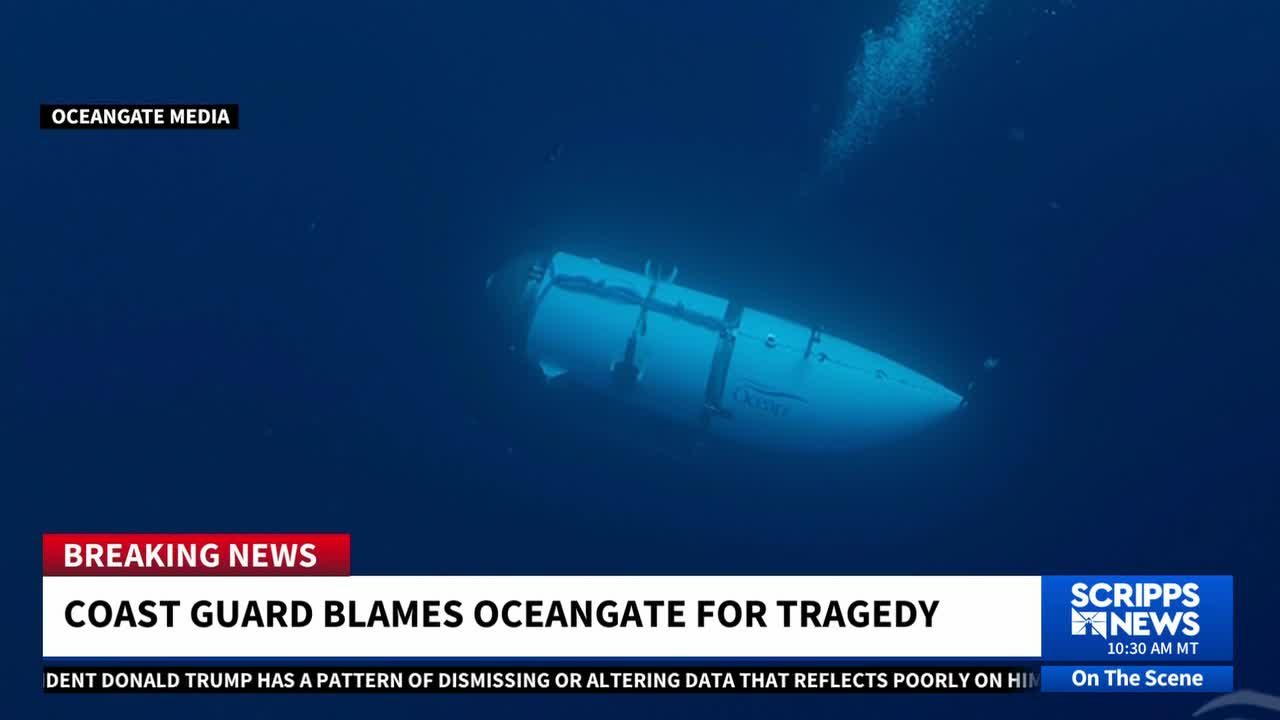The Coast Guard’s report on the Titan submersible disaster that killed five on the way to the Titanic said Tuesday the implosion was “preventable.”
The disappearance of the Titan off Canada in 2023 led to a search that grabbed worldwide attention, and the Coast Guard convened its highest level of investigation in the aftermath.
The Titan was owned by OceanGate, a private company based in Washington state. The operator of the submersible, OceanGate head Stockton Rush, was among the five on board who died. There were no survivors.
The report found the company's safety procedures were “critically flawed,” noting that the core of the failures inside the company came down to “glaring disparities” between their safety protocols and actual practices.
RELATED STORY | Titan submersible crew knew they were dying before implosion, family says in wrongful death suit
The submersible disaster has led to lawsuits and calls for tighter regulation of the developing private deep sea expedition industry.
Jason Neubauer, with the Marine Board of Investigation, said that the findings will help prevent future tragedies.
“There is a need for stronger oversight and clear options for operators who are exploring new concepts outside of the existing regulatory framework,” he said in a statement.
Spokespeople for OceanGate did not immediately respond to phone calls seeking comment on the report. OceanGate suspended operations in July 2023.
Investigators found that the submersible’s design, certification, maintenance and inspection process were all inadequate.
Throughout the report, which spans more than 300 pages, investigators repeatedly point to OceanGate’s culture of downplaying, ignoring and even falsifying key safety information to improve its reputation and evade scrutiny from regulators. OceanGate ignored “red flags” and had a “toxic workplace culture,” while its mission was hindered by lack of domestic and international framework for submersible operations, the report says.
Numerous OceanGate employees have come forward in the two years since the implosion to support those claims. The report says firings of senior staff members and the looming threat of being fired were used to dissuade employees and contractors from expressing safety concerns.
The report alleges that for several years preceding the Titan’s explosion, OceanGate “leveraged intimidation tactics, allowances for scientific operations, and the company’s favorable reputation to evade regulatory scrutiny.”
“By strategically creating and exploiting regulatory confusion and oversight challenges, OceanGate was ultimately able to operate TITAN completely outside of the established deep-sea protocols,” the report found.
RELATED STORY | Titan submersible's scientific director says the sub malfunctioned just prior to the Titanic dive
The Marine Board said one challenge of the investigation was that “significant amounts” of video footage evidence that had been captured by witnesses was not subject to its subpoena authority because the witnesses weren’t U.S. citizens.
In addition to Rush, the implosion killed French explorer Paul-Henri Nargeolet, British adventurer Hamish Harding and two members of a prominent Pakistani family, Shahzada Dawood and his son Suleman Dawood.











